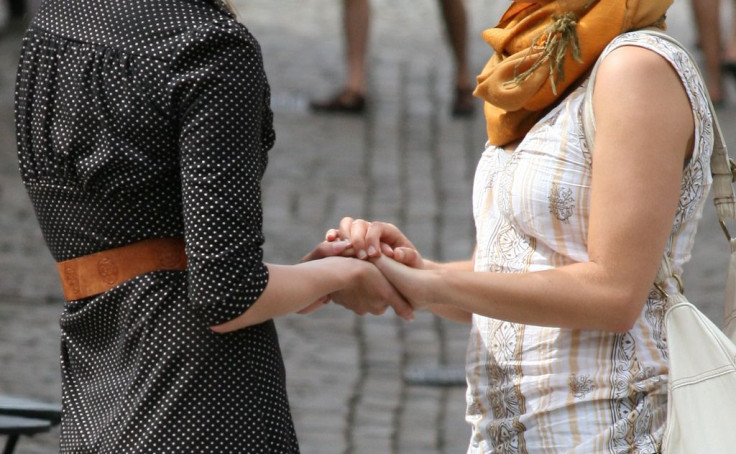Friendship Is Magic: How We Pick Friends, And How They Contribute To Our Well-Being

Friendships come in all shapes and sizes, but should it matter whether your best friend is a guy or a girl? A new study wanted to delve a little deeper into defining how friendships work depending on age, gender, and sexual orientation.
The study, out of Chapman University, focused primarily on LGBT groups — since not much research has been done on how same-sex or opposite-sex friendships are forged in this population.
“The role of friendship for gay men, lesbians, and especially bisexual men and women (collectively known as GLB) has been understudied,” David Frederick, assistant professor of psychology at Chapman University, said in the press release.
The researchers wanted to find out whether sexual orientation had an impact on friendship patterns, such as the number of friends people have, how much friendship contributes to overall well-being, and the likelihood of gender homophily. Gender homophily is the idea that people associate with people who are similar to them, especially those of the same gender. For example, girls tend to bond with other girls, while straight males tend to gravitate toward other dudes with whom they can watch football and do “bro things."
“Friends play important roles throughout our lives by providing expressive, instrumental, and companionate support,” the authors write in the abstract. “[W]e examined the extent to which people relied on same-gender versus cross-gender friends for these types of support.”
They examined 25,185 participants in a survey, consisting of 11,924 heterosexual men, 387 bisexual men, 343 gay men, 220 lesbian women, 511 bisexual women, and 11,800 heterosexual women, all with an average age of 42. The researchers found that gender homophily was common in most groups except for gay men and bisexual men. Gay men were more likely to have a greater amount of female friends than they did straight male friends — especially since they ranked females higher as good friends to talk about their sex lives and celebrate their birthdays.
Generally speaking, all groups examined in the study had similar rankings when it came to friendship satisfaction; mostly everyone believed that friendship satisfaction and job satisfaction were the most important factors in determining life satisfaction. Number of friends, meanwhile, wasn’t as important in making someone happy.
“To our knowledge, this is the first national study to provide comprehensive comparisons of the same-gender and cross-gender friendship networks of GLB men and women,” Frederick said in the press release. “What we learned is the similarities in friendship patterns observed by gender and sexual orientation may reflect growing gender egalitarianism and increased social acceptance of GLB individuals throughout the U.S.”
In short, it doesn't matter what gender or sexual orientation your friends are; a good friend is a good friend, and friendships contribute significantly to our mental health and overall well-being.
Source: Gillespie B, Frederick D, Harari L, Grov C. Homophily, Close Friendship, and Life Satisfaction among Gay, Lesbian, Heterosexual, and Bisexual Men and Women. PLOS ONE. 2015.
Published by Medicaldaily.com



























